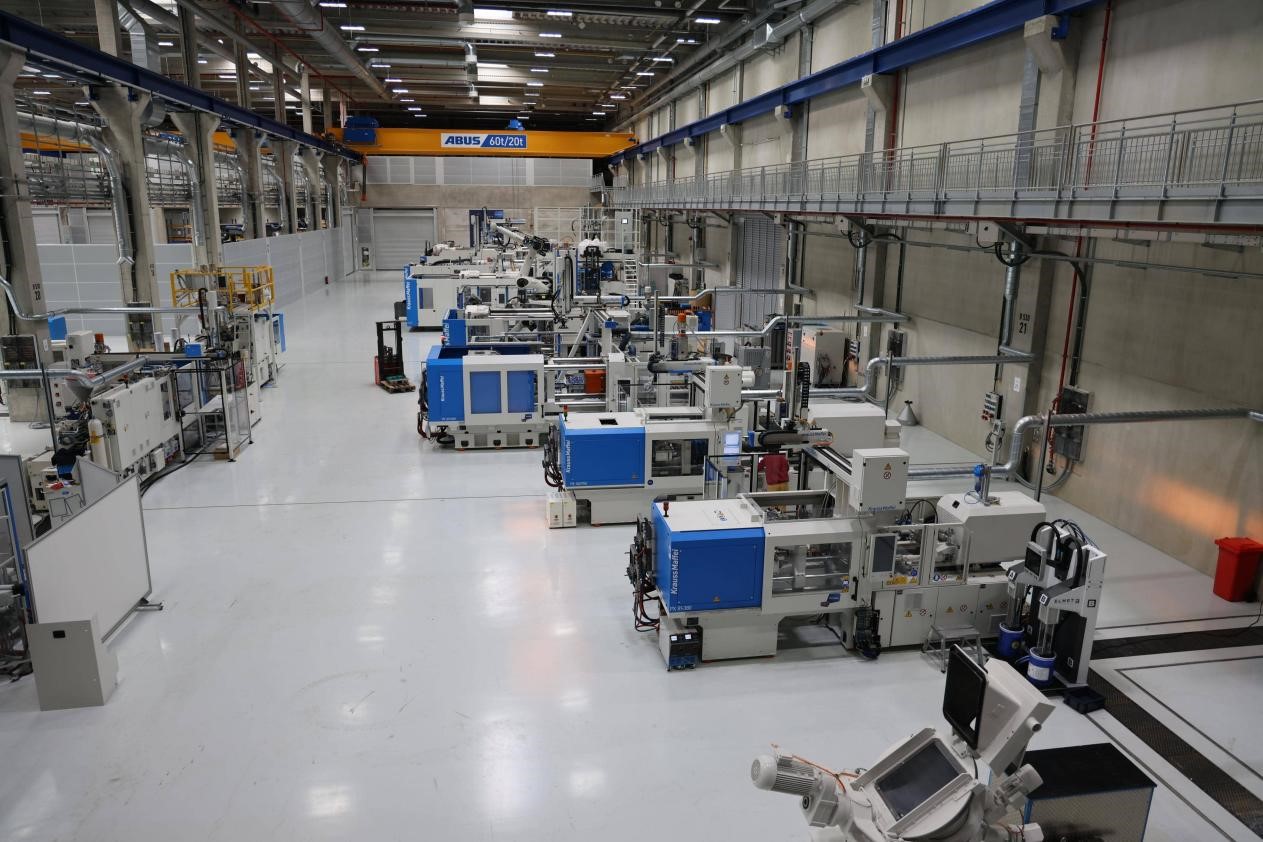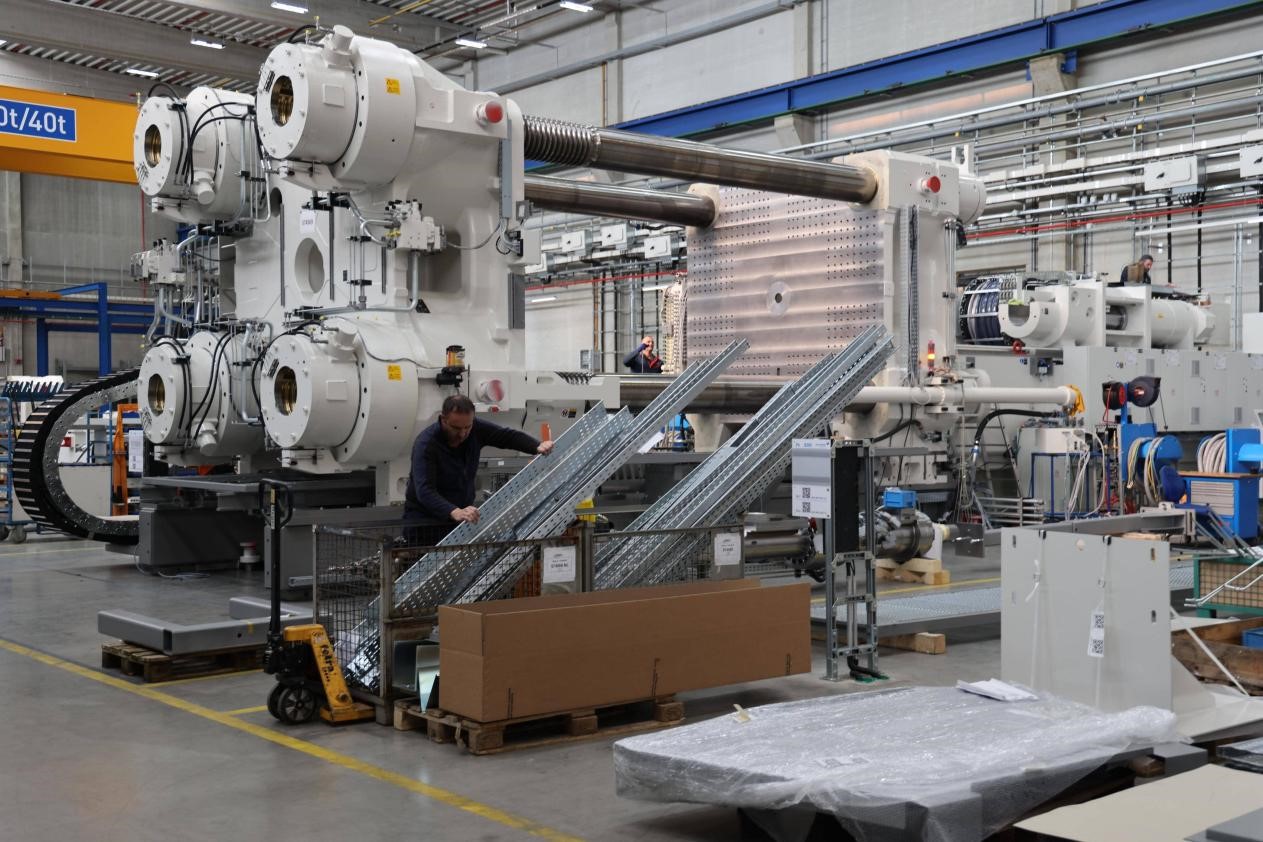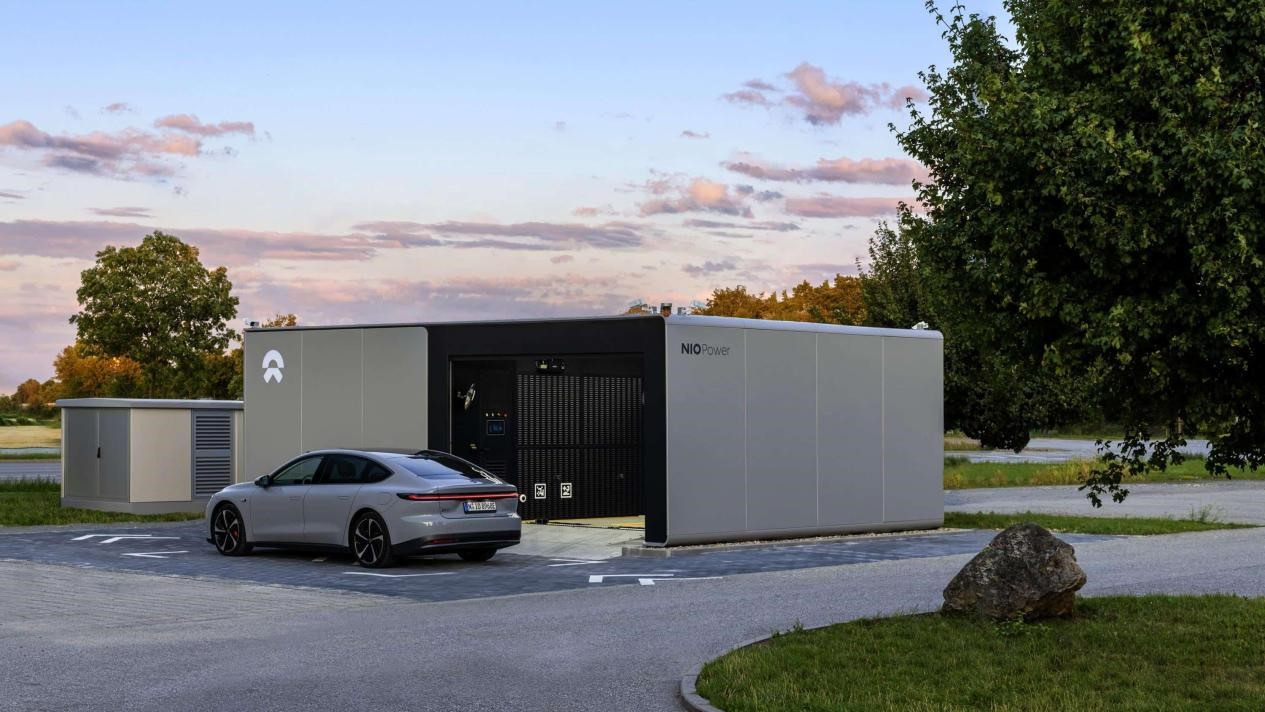




- BRNN
- BRI News
- BRNN News
- Database
Official Documents Polices and Regulations
Inter-government Documents International Cooperation BRI Countries
Business Guide Economic Data BRI Data
Trade
Investment Projects Latest projects
Cases - Content Pool

In the R&D testing center of KraussMaffei's new factory, high-precision injection molding machines undergo trial operations. (People's Daily/Liu Zhonghua)
Located in southern Germany, Bavaria is the country's largest federal state in terms of area and one of its most economically developed regions. Over the past several decades, Bavaria has achieved remarkable progress in economic and trade cooperation with China.
China is Bavaria's largest trading partner worldwide and one of its most important overseas markets. It has ranked as the state's top Asian investor for consecutive years, with approximately 500 Chinese companies now operating in Bavaria. Meanwhile, more than 2,000 Bavarian enterprises maintain business relations with China.
Bavaria is home to the headquarters of many German multinational corporations and a major center for the automotive, electronics, chemical, and pharmaceutical industries in Germany and Europe at large.
In January 1975, Franz Josef Strauss, then chairman of the Christian Social Union of Germany and former Bavarian Minister-President, visited China at invitation. He made several subsequent visits to China, laying crucial groundwork for exchanges and cooperation between Bavaria and China across political, economic, and social spheres.
"Strauss' visit 50 years ago was truly groundbreaking. He recognized China's potential and future importance, establishing the foundation for the sustained development of Bavaria-China relations," said Bavarian Minister-President Markus Soder.
"Looking back at history, the most important lesson is that differences in systems, ideologies, and levels of economic and social development are not grounds to reject cooperation," remarked Qiu Xuejun, consul-general of China in Munich.

Technicians assemble and commission large injection molding equipment inside a workshop at KraussMaffei's new factory. (People's Daily/Liu Zhonghua)
Since Strauss' first visit to China in 1975, China and Bavaria have maintained close exchanges based on mutual benefit, win-win cooperation, and strong people-to-people connections. Their collaboration has yielded fruitful outcomes, serving as a model and a pillar of China-Germany relations.
On the eastern outskirts of Munich in Parsdorf, a state-of-the-art manufacturing facility gleams in the sunlight. Its clean, bright offices and expansive rooftop solar photovoltaic panels make it a showcase for modern industry. This is the new headquarters of the KraussMaffei Group, a 187-year-old manufacturer of plastic and rubber machinery employing approximately 5,000 people worldwide.
"Our new headquarters addresses the limitations of space and aging equipment at our former site. Intelligent scheduling, unmanned logistics, and energy-efficient building systems have significantly improved production efficiency while reducing carbon emissions by 62 percent and waste by 85 percent, setting a benchmark for the green industry," said Zhang Chi, CEO of KraussMaffei Group.
In 2016, China National Chemical Corporation (ChemChina) acquired KraussMaffei. According to reports, since the acquisition, the company has undergone extensive structural transformations, from strategic planning to research and development (R&D) investment, from production line upgrades to global market expansion. Particularly notable progress has been made in green manufacturing, digital operations, and additive manufacturing.
Zhang noted that ChemChina's support in clarifying development strategies, increasing R&D investment, upgrading production facilities, advancing technologies and expanding markets has accelerated KraussMaffei's transformation and development. These initiatives have not only promoted corporate growth but also generated tangible benefits for local economic and social development, including increased investment, job security, technology enhancement, market diversification, and tax revenue.
Bavaria serves as both an important industrial manufacturing base in Europe and a frontier for China-Germany practical cooperation. In recent years, an increasing number of Chinese companies have established a presence in Bavaria in emerging industries such as smart manufacturing, green mobility, and new energy. Meanwhile, German companies are leveraging the scale and technological momentum of the Chinese market to upgrade and globalize their operations.

Photo shows a battery-swapping station operated by China's NIO, a leading global smart electric vehicle (EV) company, in Bavaria, Germany. (Photo provided by NIO)
Recently, China's NIO, a leading global smart electric vehicle (EV) company, officially opened its 20th battery-swapping station in Germany, five of which are located in Bavaria. This innovative green mobility model has drawn considerable interest from Bavarian policymakers and businesses. As one of the earliest Chinese EV companies to enter Bavaria, NIO established its global design center in Munich in 2015 and now employs more than 350 people there.
"Over the past five years, direct investment from Chinese companies in Bavaria has continued to increase. Around 500 Chinese companies currently operate here, covering multiple sectors including mobility, digitalization, energy, life sciences, and new materials," said Ulrike Hoffmann, director of invest in Bavaria.
Chinese companies value the high-quality workforce, robust network of small and medium-sized enterprises, and excellent transport and business environment here, making Bavaria a hotspot for Chinese companies seeking to expand globally, Hoffmann explained.
Bavaria also maintains sister-state or sister-province relationships with three Chinese provinces - Shandong, Guangdong, and Sichuan - more than any other German federal state. These partnerships have fostered cooperation in science and technology, education, environmental protection, culture, and other fields.
Hoffmann stated, "Bavaria hosts annual business dialogues with China to provide platforms for communication between enterprises and governments. We look forward to welcoming more Chinese partners to invest in Bavaria."

Tel:86-10-65363107, 86-10-65368220, 86-10-65363106